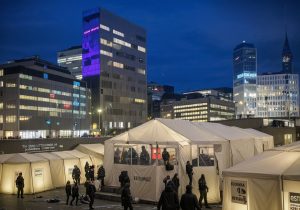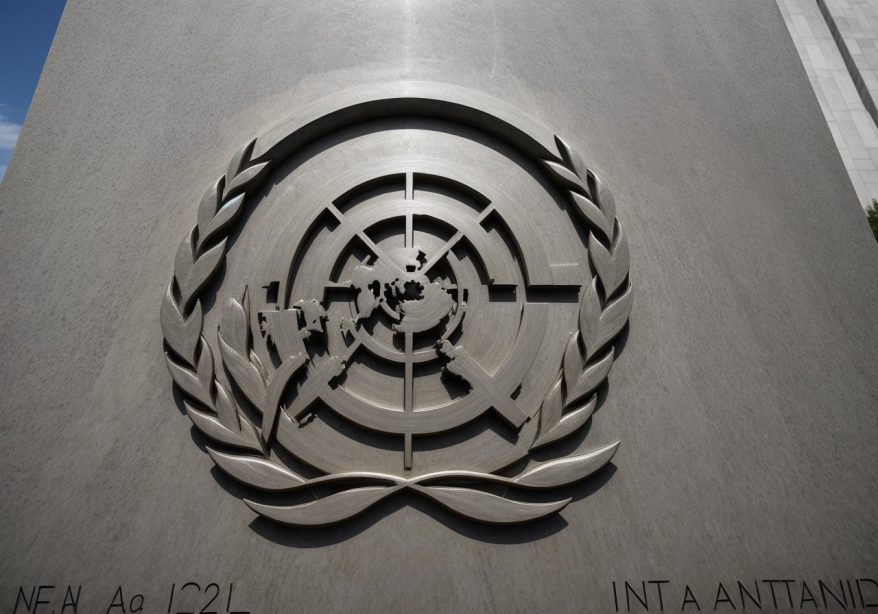The world holds its breath as scientists announce a breakthrough: a vaccine for the Fuengirola virus is finally here. After years of devastation, the promise of immunity brings a glimmer of hope. Yet for the 8 million who lost their lives, and the countless others whose bodies and lives are forever changed, the vaccine arrives too late. As the rollout begins, life slowly starts to return to a semblance of normalcy, but the scars left by the pandemic will take generations to heal.
The Vaccine Breakthrough:
After traditional vaccines and mRNA candidates failed to deliver the efficacy needed to stop the Fuengirola virus, scientists discovered a groundbreaking solution. An interferon-stimulated gene capable of producing ddhCTP (3ʹ-deoxy-3′,4ʹdidehydro-CTP), an elongation inhibitor, proved to be the key. By terminating the virus’s RNA replication, this innovative approach effectively neutralized the virus.
Leveraging advanced biotechnological techniques, pharmaceutical companies developed a vaccine capable of being mass-produced as efficiently as the COVID-19 vaccines. Its creation marked a turning point in humanity’s fight against the virus. Hospital workers and children were prioritized in the rollout, ensuring the most vulnerable were protected first.
A Moment of Relief:
The CEO of the pharmaceutical company leading the vaccine research delivers a moving speech:
“Today, we take a step toward reclaiming our future. The Fuengirola virus may no longer define our lives, but let us never forget the 8 million souls who lost theirs. This vaccine cannot console their families, but it can ensure their sacrifice was not in vain. Europe will find peace again, and humanity will rise from this tragedy stronger than ever.”
The rollout becomes a global event, with vaccination centers packed with people dressed in their finest attire. For many, the moment is celebratory—a sign of hope after years of isolation and fear. You, a freelancing web developer, feel this hope as you join the line for your vaccination. The cost of €1,500 for a pre-order dose feels like a necessary investment, one that will finally allow you to rebuild your business. It’s less than the price of a new MacBook Pro, and you’re confident it will be worth it. As you receive the shot, you feel a sense of renewal, mirrored in the relieved and hopeful faces of those around you.
The Virus’s Lasting Impact:

Even as the vaccine begins to curb infections, the Fuengirola virus continues to ravage the world. The pandemic’s toll extends beyond lives lost, leaving political, social, and economic upheaval in its wake:
- Ireland and the UK: Years of close cooperation during the pandemic have led to discussions of Ireland joining the UK, a decision fueled by the mutual benefits seen in their crisis management.
- Spain’s Response: Barcelona and Fuengirola, the cities hardest hit, remain symbols of the pandemic’s devastation. The memory of the Swedish scammer turned superspreader lingers, prompting Spain to enact some of the harshest anti-fraud laws in the world. Telemarketing scam companies and individual scammers face severe consequences, with domestic scammers receiving harsh prison sentences and foreign scammers deported.
- Sweden’s Populistic Shift: Sweden’s populistic government has implemented public trials in Finspång for convicted criminals. Several telemarketing scammers exploiting elderly Swedes were deported from Spain and subjected to these public trials, receiving harsh punishments that have polarized public opinion.
- HOFTA Agreement: In the U.S., a controversial agreement with China—the Human Organ Free Trade Agreement (HOFTA)—allows for the import of kidneys to help survivors of the Fuengirola virus who suffered kidney failure. While saving lives, the agreement has sparked fierce ethical debates about human organ trade.
- Economic Shifts: The pandemic triggered a housing market crash, creating opportunities for first-time buyers. However, this silver lining is overshadowed by the long-term economic recovery needed in many regions.
Honoring Healthcare Workers:
Hospital personnel, who bore the brunt of the pandemic, are celebrated as heroes. Public ceremonies recognize their sacrifices, with memorials erected outside major hospitals. The phrase “For Those Who Held the Line” becomes a rallying cry, engraved on plaques honoring their resilience and dedication.
The End of the Pandemic:
Months after the vaccine rollout began, the global infection rate drops to near zero. Infections no longer overwhelm healthcare systems, and the Fuengirola pandemic is officially declared over. The UN holds a solemn memorial for the 8 million lives lost, unveiling a monument inscribed with the names of the deceased and the phrase:
“In Memory of Those Who Perished, and in Honor of Those Who Fought.”
The memorial serves as a reminder of the pandemic’s lessons—of the need for vigilance, unity, and compassion in the face of unprecedented challenges.

Closing Reflection:
As you return to your freelancing work, contracts start coming in more steadily. Life begins to resemble what it was before the Fuengirola virus, though you and the world around you are forever changed. The scars of the pandemic, both visible and invisible, remain. But so does the hope that humanity can overcome even the darkest of times.
Disclaimer:
This episode is a fictional exploration of the Fuengirola virus pandemic, intended as speculative entertainment. The events described are not real, and the characters and organizations mentioned are entirely fictional. For accurate information on public health and pandemic preparedness, consult reputable sources and health organizations.

